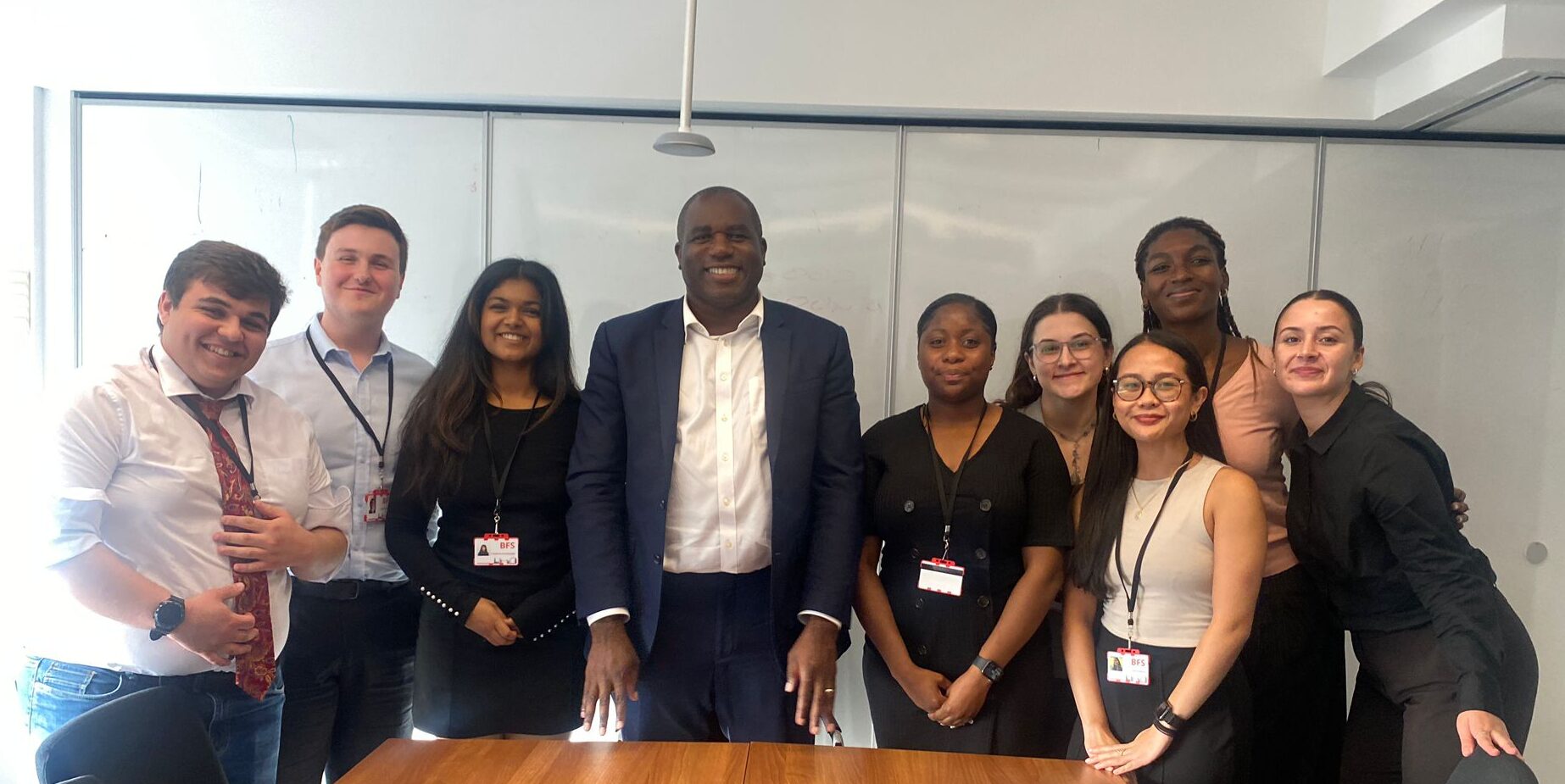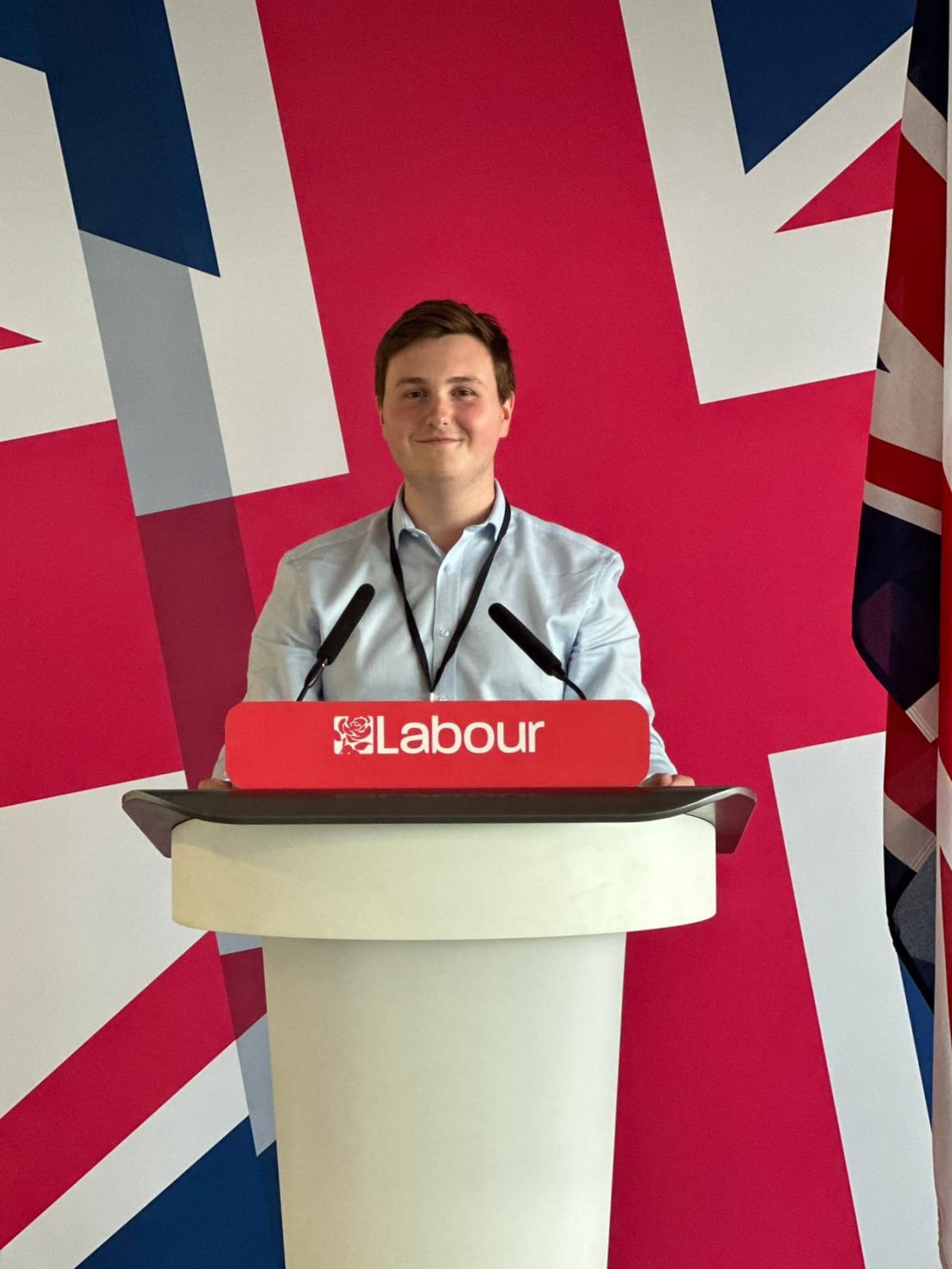“The biggest impact Patchwork has had on my life, is it has bridged the gap between having potential and being able to fulfil it, putting you in the right places at the right time, providing opportunities for you to improve yourself but also improve things for others…”
Running Towards, not Running Away: A Masterclass with Anas Sarwar MSP
Sophie (she/her) is a third-year BSc Biology student at The University of Sheffield. She holds a range of roles at her university, including on the LGBTQ+ Representative Committee, Forge Press, Diversity Champion & SUTCo Production Manager, among others. She has a keen interest in intersectionality in politics, particularly regarding the sciences, promoting politics to young people, LGBTQ+ rights and cooperation between groups both within & outside of Parliament. Sophie joined the Patchwork Masterclass Programme to refine existing, and gain new skills crucial for a future changemaker or potential public servant, whether in Parliament or elsewhere.
Leading the third largest party in Holyrood and dealing with the challenges spearheading the devolved wing of a national political party brings, Anas Sarwar MSP contends with a range of unique challenges in his position as Leader of the Scottish Labour Party and MSP for Glasgow (region). As a former NHS dentist and Westminster MP, Mr Sarwar’s career has been anything but linear, but this pathway may have given the MSP a degree of experience unlike any others in Holyrood. Sitting down with the ‘Mini-Ministers’ Patchwork cohort, Mr Sarwar spoke to us about his career, life as an MSP and how Scotland and the Labour Party interface in the political crucible of Holyrood.
The most striking concept that Mr Sarwar spoke about was one of the catalysts for his progression into politics: the desire to advocate for change. With political spheres around the globe becoming continuously more polarised, many single issues can often define a person’s voting intention or even attitude towards a particular party or politician. It was on this issue that Mr Sarwar’s words had the biggest impact on me. No party is perfect, and we can each advocate the change we want to see with much greater effect within a group than from outside; I found some of my strongest viewpoints being fundamentally challenged. By running towards an issue we face, whether politically or within our wider lives, we can effect change much more reliably than avoiding an entity because of it. Whilst it may seem a simple point to be making, I found my entire attitude towards particular parties changing right in front of me.
It was also particularly fascinating to learn more about Mr Sarwar’s career progression, especially his prior job as an NHS dentist. Many politicians, including some prominent former Cabinet members, have said they believe candidates should have experience in unrelated jobs before entering Parliament. And if Mr Sarwar is anything to go by, this is a fantastic idea! Despite on the surface appearing to have little in common, as we walked through his career so far, the similarities between the two jobs were surprising, from listening effectively to people and working with them to resolve an issue to being honest about the challenges faced in order to get there. Mr Sarwar may have had one of the more unusual journeys to reach Parliament and Holyrood, but a surprisingly applicable one, which made me reconsider my own future as well, as someone studying a scientific degree myself.
A considerable section of my degree focuses on the impacts of climate change and the need for immediate, drastic action in order to remedy it, but rarely how scientists can advocate effectively for those changes to be made. Those within political spheres often lack specific knowledge in some key areas, with few biologists or scientists in Parliament. But Mr Sarwar has shown that the transition from STEM to politics is not only possible, but crucial. By combining the scientific knowledge provided by my degree, and political expertise from figures such as Mr Sarwar, it will be increasingly possible for experts in their field to not only lobby for change, but be the ones to implement it. Learning about the threats to our planet have made me strive to be the change I want to see, and Mr Sarwar’s words have been instrumental in allowing me to see this future reality, and want to reach further than ever to achieve it.
A final key point that I took from Mr Sarwar’s Masterclass was the need to get young people involved in politics at all levels, from grassroots to nationally. 2024 is set to be an important year for elections, both worldwide and in the U.K. specifically, with a wide range of pressing issues at the forefront of everyone’s minds. But whilst many are able to understand what an issue means and have opinions on the viewpoints individuals take, few of us are active campaigners on these issues. Mr Sarwar emphasised how important young people feeling engaged and involved in politics is, after he himself joined his party in his teenage years. Young people have a unique perspective on issues that many other groups often don’t, yet we’re often the least represented in politics at all levels, including campaigning and canvassing. Mr Sarwar’s focus on his own introduction to politics and the need for young people to stand up and be counted, not only at the ballot box, showcased his heartfelt desire for more of us to be engaged and make our voices heard, especially with so many elections happening this year. There are opportunities for us all to get involved in one way or another and we need to be taking them in order to advocate for the change we want to see on the inside, rather than from the sidelines.
Having my first Patchwork Masterclass with Anas Sarwar MSP was always going to be an unforgettable experience, but I had never imagined it would shift some of my own beliefs so fundamentally in such a short period of time. To hear from someone who has overcome unique challenges to reach the height of the Scottish Labour Party in the way that he has was an incredible opportunity for someone who finds herself at a crossroads in her career. Mr Sarwar’s words were inspirational and have left me with much to consider as I begin a possible political career of my own.
Stay updated
Join our mailing list to stay up to date with all the latest!
Latest news
Testimonials



